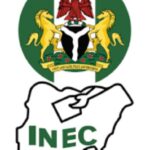By Stella Odueme
The Managing Director of Azura Power West Africa, Mr. Edu Okeke has canvassed a market capitalization for all the Electricity Distribution Companies, also known as DisCos for efficient service delivery to Nigerians.
He also appealed to the government to remove the debts from the DISCOs’ books and increase capitalization to $500m.
Also, the Minister of Power, Adebayo Adelabu, represented by the Director of Renewable Energy, Sunday Owolabi said the Federal Government is determined to provide 24-hour power supply to Nigerians.
The duo spoke on Thursday in Abuja at the 4th edition of the Power Correspondents Association of Nigeria (PCAN) annual workshop with the theme; “Ending The Talk, Moving To Action”.
Okeke who stressed that Nigeria needs stable power if it is to make meaningful progress, noted that even with the tariff adjustments, many DisCos still struggle to pay their total bills to the entire chain.
‘This is largely due to their lack of capacity to make the necessary investments to recover costs effectively. To enable meaningful progress, DISCOs must be adequately capitalized.
“Unfortunately, most DISCOs have negative equity, leaving them with little to no financial stake. This situation must change. Ideally, no DISCO should operate without at least $250m in shareholder funds. Just as the Central Bank of Nigeria has raised capital requirements for banks to ensure their stability and capacity to serve, the Nigerian Electricity Regulatory Commission (NERC) should mandate similar capitalization standards for DISCOs.
“Many DISCOs also carry a heavy burden of debt, accumulated over time through a mix of operational challenges and systemic issues. To truly address this problem, the Government needs to come clean and take a decisive step.
“My recommendation is a two-pronged approach: to consider removing these debts from the DISCOs’ books and mandating them to increase their capital by at least USD 500 million each.
“This will require existing shareholders to dilute their holdings to attract new investors with real capital to invest in infrastructure — not just on paper, but in transformers, cables, and equipment to serve customers reliably”.
According to him, for any investment in the power sector to be viable, investors must be assured of cost recovery. To this end, he suggested either the government pays or consumers do.
“I commend the Government’s recent decision to transfer costs to, consumers, starting with Band A.
“Ultimately, consumers will bear a fair share of the cost of the power they consume. However, this equation has a critical weak link — the Distribution Companies (DISCOs), who directly interface with consumers. As things stand, even with tariff adjustments, many DISCOs struggle to pay their total bills to the entire value chain.
On his part,
Adelabu stressed that the government’s policies are focused on ending the challenges facing the country’s electricity transmission, distribution and generation sub-sectors.
“We are fully committed to transforming the country’s power sector. We are focused on ensuring that our policies are practical and sustainable.
We are resolute on ensuring power supply for every Nigerian,” he said.
On his part
MD/CEO of Nigerian Electricity Management Services Agency (NEMSA) & Chief Electrical Inspector of the Federation, Engr. Aliyu Tukur said that the importance of this workshop cannot be overstated. “NEMSA is steadfast in our commitment to ensuring the efficient production of safe, reliable and sustainable Electricity supply.
“The media, represented here by PCAN, plays a crucial role in creating awareness, disseminating accurate information, and fostering transparency within the industry. You are the bridge between the sector and the public, and your work in reporting and educating the public on power-related issues is invaluable.”
Earlier in his welcome address, the Chairman of PCAN, Comrade Obas Esiedesa, expressed displeasure over the incessant national grid collapses being experienced in the power sector in addition to the recent electricity tariff hike.
“However, persistent issues with grid reliability and the ongoing challenges in the national grid system, even after 11 years of privatisation, remind us too much of the pre-privatisation era.
“Our concerns are heightened by the fact that these issues persist despite the service-based tariff and the increased tariffs for Band A customers,” he stated.
The PCAN Chairman however commended government in seeking to address challenges surrounding the country’s power sector, especially with the 2023 Electricity Act.
Comrade Esiedesa, said the workshop was organised to chart a new course for Nigeria’s power sector.
“As journalists covering the power sector, we are concerned that the sector has seen more discussions than actual progress. Despite the constant dialogue, each step forward often seems to bring about setbacks.
Our concerns are heightened by the fact that these issues persist despite the Service-Based Tariff and the increased tariffs for Band A customers.
“As journalists, we find the state of the sector disheartening, and I believe I speak for many when I say that we cannot be silent. Today’s workshop is a call to action. We are here to discuss meaningful ways to move forward, and I am glad to see so many industry leaders in attendance,” he stated.
Highlight of the workshop was the presentation of awards to deserving firms that have remained resilient in positive contributions to the power sector.

